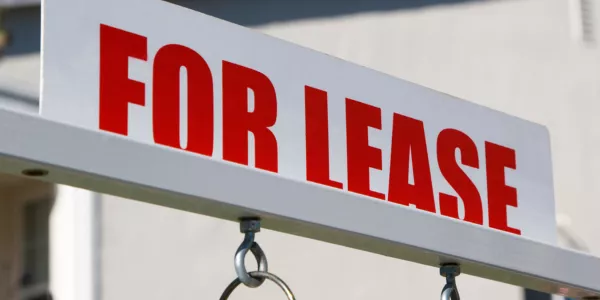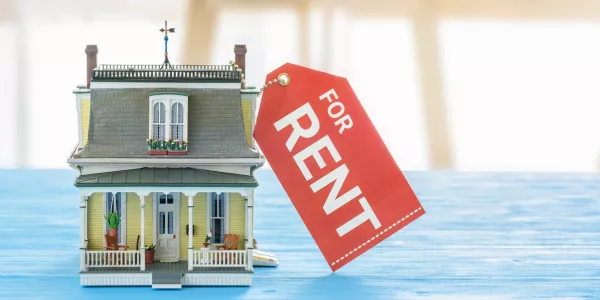The importance of learning about house leasing lies in its complexity and the legal obligations it entails. Unlike short-term rental agreements, a lease typically spans a considerable duration—often a year or more—locking in both parties to agreed terms.
This binding contract covers various aspects, including rent, maintenance responsibilities, rules about subletting, and termination conditions. Navigating these terms effectively can ensure a harmonious tenant-landlord relationship and prevent potential legal disputes.
For tenants, understanding leasing is vital to securing a living situation that fits their long-term needs without the unpredictability of month-to-month renting. For landlords, it provides a stable, predictable income stream and ensures their property is occupied by committed tenants for a set period.
Additionally, comprehending the legal aspects, such as the rights to privacy and a habitable environment for tenants, and the property maintenance and management responsibilities for landlords, is fundamental.
What do you mean by lease?

A lease is a contractual agreement between two parties, the lessor (often the property owner or landlord) and the lessee (the tenant). It grants the tenant the right to use and occupy a rental property for a predetermined period in exchange for rent.
Unlike a typical rental agreement, which may be month-to-month, a lease typically has a fixed term, such as six months, a year, or even longer. During this period, both the rent amount and the terms of the tenancy are usually fixed and cannot be changed unless both parties agree.
Lease versus Rent: Grasping the Key Distinctions
The primary distinction between leasing and renting lies in the length of the agreement. A lease agreement is typically set for a specified duration, often one year, as outlined in a formal contract.
On the other hand, a rental agreement is generally more flexible, often catering to short-term or month-to-month arrangements, such as temporary stays or holiday lettings. Here are some key factors about both:
Leasing

Often long-term (usually a year or more), a lease agreement is more rigid. The terms, including the rent amount, are fixed for the lease duration. Early termination of a lease often incurs penalties.
Renting

Generally more flexible and often on a month-to-month basis. Rent agreements provide more flexibility for both the tenant and the landlord to alter terms, including termination of the agreement with shorter notice and less penalty.
What Is a Lease Guarantor?
A lease guarantor is someone who agrees to be responsible for the lease obligations if the tenant fails to meet them. This typically includes paying the rent and covering any damages. Guarantors are often required when the tenant has a limited rental history, poor credit, or income that is below the landlord's requirement.
The guarantor is legally bound by the terms of the lease, just like the tenant, making it a significant responsibility. Typically, guarantors are often parents, relatives, or trusted friends who have the financial capacity and willingness to assist in paying your rent in case you find yourself unable to do so.
Why Would I Need a Lease Guarantor?
You might require a lease guarantor for several reasons, primarily related to ensuring the landlord's confidence in the stability and reliability of the lease agreement. A lease guarantor acts as a safety net for landlords, providing them with a measure of security in case you, as the tenant, are unable to fulfill your financial obligations under the lease.
There are some common scenarios where a guarantor might be necessary:
Insufficient Income
If your income doesn't meet the landlord's required threshold, typically around 2.5 to 3 times the monthly rent, a guarantor can reassure the landlord of consistent rent payment.
Poor or Limited Credit History
A guarantor is often needed if you have a low credit score, a history of missed payments, or simply a lack of substantial credit history (which is common for young tenants or recent graduates).
Student or Young Renter
Students or young individuals without a steady income or credit history often require a guarantor to sign the lease.
New Employment or Self-Employment
If you've recently started a new job or are self-employed, a landlord might see your financial situation as unstable. A guarantor provides an extra level of assurance.
Relocating from Abroad
For tenants moving from another country, having a guarantor can be crucial, as they might not have a local credit history or employment record when they first arrive.
Rental History Concerns
If there are issues in your previous rental history, such as late payments or evictions, a landlord might request a guarantor to mitigate the risk of future rental issues.
People also ask
What are common terms included in a lease agreement?
A lease agreement typically includes the rent amount, payment due dates, security deposit details, lease duration, rules about pets, maintenance responsibilities, conditions for lease termination, and policies regarding subletting or alterations to the property.
Can a lease be terminated early, and if so, how?
Early termination of a lease is possible but usually comes with penalties. Terms for early termination should be outlined in the lease agreement. Commonly, tenants might need to pay a termination fee or continue paying rent until a new tenant is found.
What are the rights and responsibilities of a tenant in a lease agreement?
Tenants have the right to a habitable living environment, privacy, and the use of the property as outlined in the lease. Their responsibilities include paying rent on time, keeping the property in good condition, and adhering to the lease terms.

 Marcio Vasconcelos
Marcio Vasconcelos





